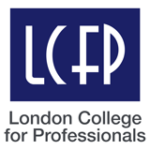
London College for Professionals
UKPRN: 10095435 | ICO Ref: ZB679746
Introduction
Academic evaluations are designed to facilitate learning and to showcase your knowledge and comprehension. Your grades reflect the extent of your demonstrated understanding and acknowledge your academic efforts.
Engaging in your academic tasks independently and ethically, adopting the correct academic style, and fully attributing all sources as per academic standards, constitutes good academic practice.
When submitting an assignment, you are affirming that the submission is your original work and not written by someone else. While collaborative study is encouraged, presenting work that is copied or co-authored with others is not permitted, unless expressly allowed in the assignment instructions.
Plagiarism
Plagiarism involves the unauthorized use of another’s ideas or work. If your submission includes work not originally yours without proper attribution (acknowledging your sources as per the Harvard referencing style), you are engaging in ‘plagiarism’, which constitutes academic misconduct. Instances of plagiarism can occur in various forms, such as:
Acknowledging the sources that inform your work is crucial to accurately represent your knowledge and skills. Failing to do so is considered academic misconduct due to the potential for gaining an unfair advantage.
The London College for Professionals (LCFP) provides detailed guidance on correct source acknowledgment in the LCFP Guide to the Harvard Referencing Style. Appendix 1 offers preliminary advice on avoiding plagiarism.
Note that the London College for Professionals (LCFP) employs text comparison software for assignment review, detailed in Appendix 2.
Appendix 1: Avoiding Plagiarism
While it’s encouraged to incorporate insights from your readings, failing to credit these sources is plagiarism, which is unacceptable.
Distinguishing between your ideas and those from external sources is essential. When quoting directly, use quotation marks and include an in-text citation. When paraphrasing, acknowledge the source with an appropriate citation.
Understanding academic conventions can be challenging for newcomers. Just as learning about your field is important, mastering how to properly present and reference your work is vital for academic success.
Remember, assignments help gauge your understanding and facilitate learning. Developing your writing style through independent engagement with the module material enriches your learning experience and improves exam performance.
Appendix 2: Text Comparison Software
Plagiarism typically manifests in two ways: i) Misusing information from the web or other sources by directly inserting text into assignments without citation. ii) Collaborating too closely on assessed tasks, leading to a collective response that could provide an unfair advantage, known as collusion.
To ensure fairness and academic integrity, the London College for Professionals (LCFP) utilizes two text comparison tools to detect potential plagiarism in submissions:
What Happens Next
A degree of similarity in assignments is expected, such as using direct quotes with proper citations or employing common terminology. The teaching team reviews similarity reports from Turnitin and CopyCatch, considering these factors when determining plagiarism instances.
Concerns from the reports may lead to further academic writing support or, for more serious issues, referral to the Academic Conduct Officer.
Data Protection
In using these systems, the London College for Professionals (LCFP) does not share personal information. Submitted work is not stored externally, ensuring privacy and confidentiality.

London College for Professionals
UKPRN: 10095435 | ICO Ref: ZB679746